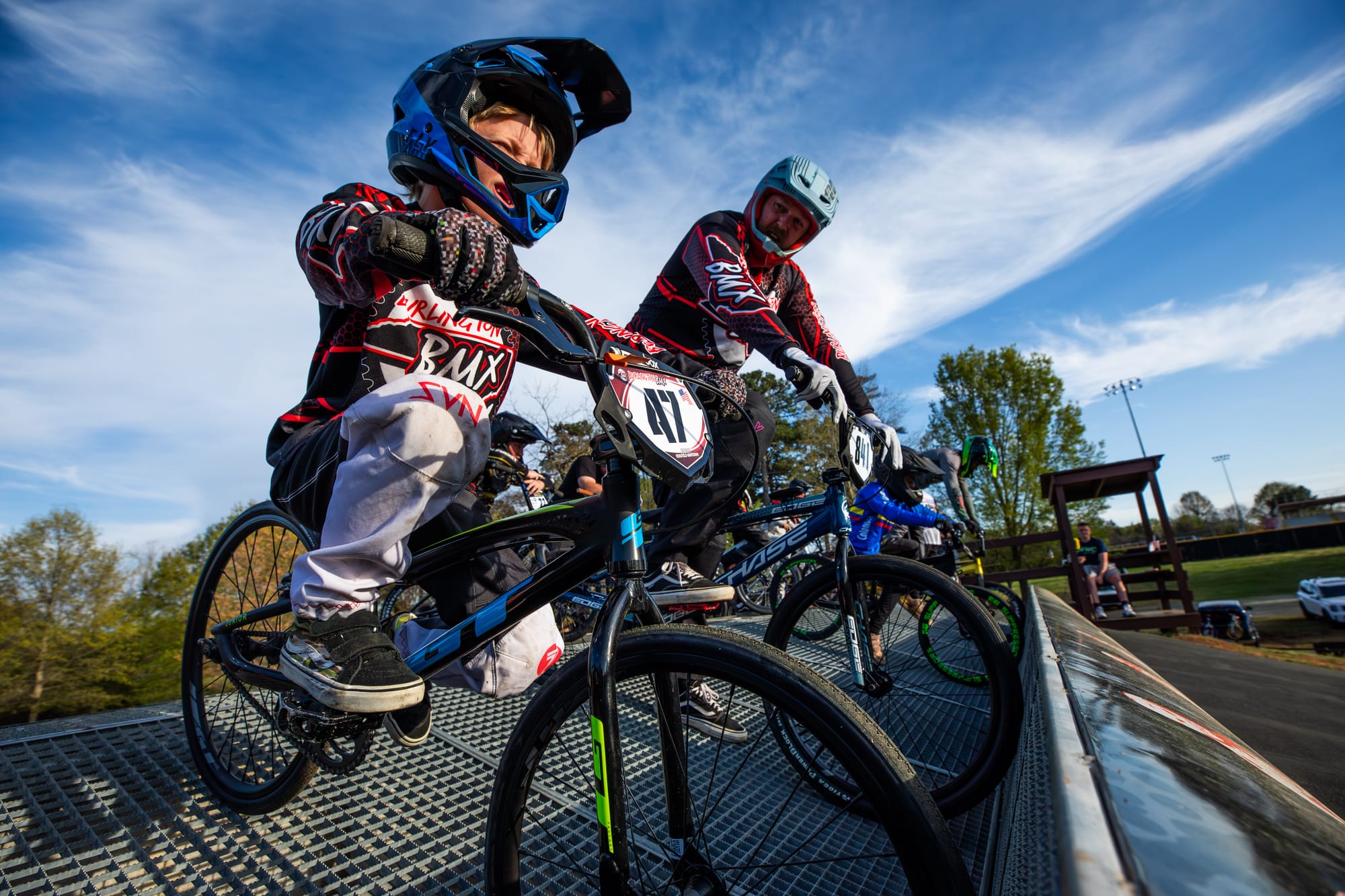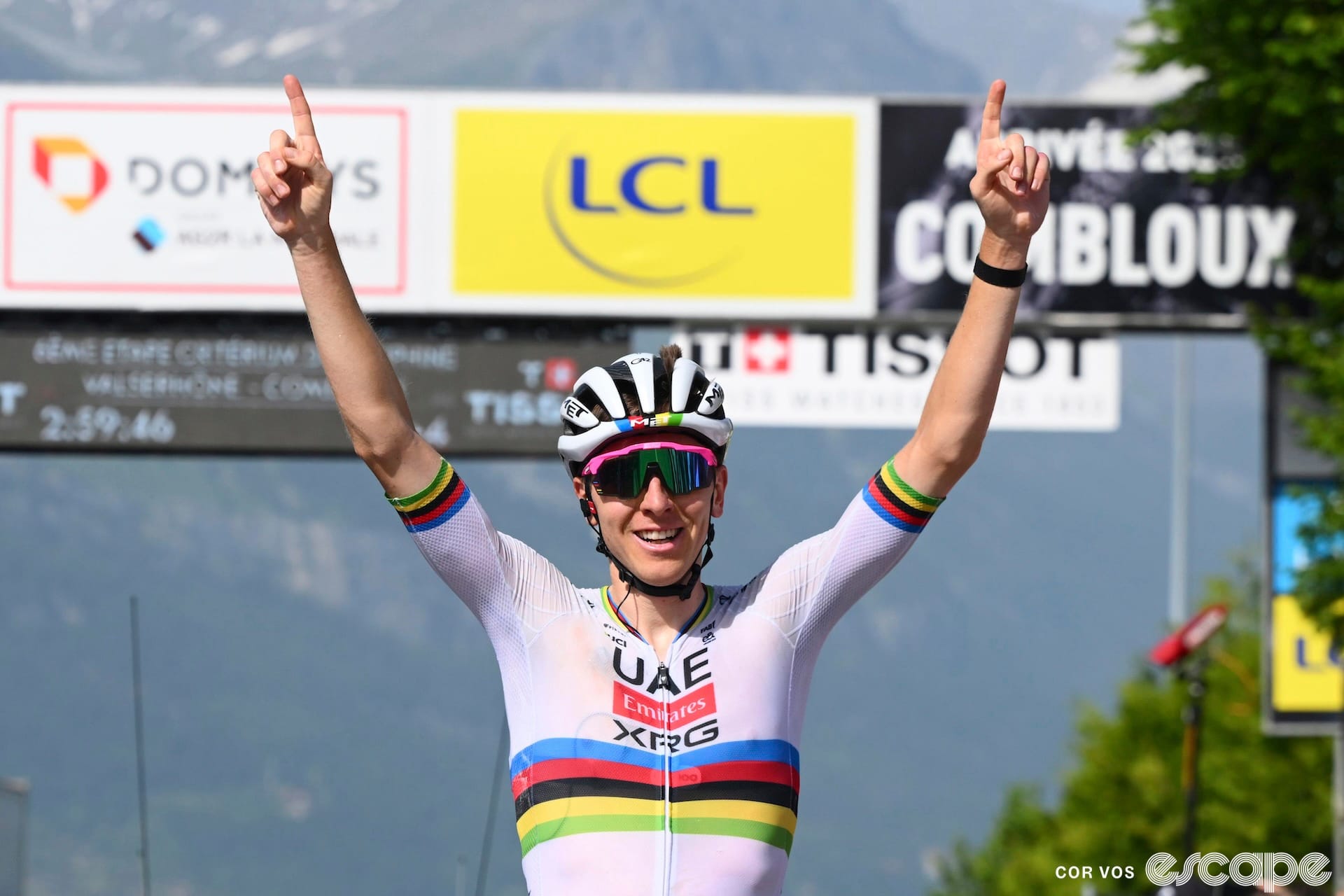Mark Cavendish is silently freewheeling past the finish line. His Oakley Katos cover the majority of his face but his mouth hangs slightly open. He is trying to process what's just happened. A sprint finish of the Tour de France where he finished second, unmistakably because of a mechanical problem with his bike. Had his equipment not malfunctioned, he would not be making his way back to the bus. He would have been corralled by Tour de France stewards and led back to the podium to receive the plaudits for a record-breaking 35th stage win.
Instead, he calmly rolls up to the team bus. Everyone is watching for how he is going to react but so far, apart from a frustrated head bob after the finish line, he has remained mostly expressionless. He stops at the rear of the bus where he is greeted by his old teammate turned sprint consultant Mark Renshaw.
"Imagine trying to sprint with your gear going 12, 11, 12, 11," Cavendish says to Renshaw, flapping his arm from side-to-side to demonstrate what he was dealing with while trying to make Tour de France history. He then disappears up onto the bus.
The waiting now commences, as Cavendish decompresses, showers, and composes himself before coming back out to talk to the media. This is a well-practiced tradition by now on this Tour's flat days. British television and journalists wait attendant, Astana-Qazaqstan's press officer soon comes over.
"You're waiting for Fedorov? Here he is," the press officer jokes as the team's 23-year-old Tour debutant arrives at the bus. Soon, Cavendish's wife and kids arrive on the scene. The family chats with Renshaw and the kids are handed icy bottles of water to help them keep cool. Peta, his wife, walks up to have a look inside the bus, to assess the situation, someone asks for an interview. "Not 'til I've spoken to him," comes the response, the same as Renshaw's on stage 3.
Still, no movement inside. Astana head honcho Alexandre Vinokourov and other team staff members crowd around Renshaw's phone to watch a replay of the sprint. In the spit of bus interior that can be seen from the outside, various pairs of feet pad between the seats in the front and the showers in the back. Finally, Cavendish descends to give us his verdict.
"Little bit," Cavendish begins, when asked whether he was frustrated with how the sprint unfolded. "Boys did good, they're incredible, I jumped when I wanted to.
"Unfortunately I had a problem with my gears when I was sprinting, I went from the 11 to the 12 and had to sit down." Cavendish is now gesticulating, his head bobbing around in animation, channelling the true frustration physically when he's trying to remain composed. "Then go back to 11, could stand up, then back to 12. Pretty devastated there, actually. Boys did good ... got a good jump ... what can you do in those situations? It's not meant to be ...
"30, 40 [meters] to go I already had to sit down and stand up again and my gears were already jumping ... you've got to pray then," he said of whether he thought at any point he'd won it. "It's not a belief, it's a hope. It is what it is, I'll try again."
The sprinter praised Cees Bol's pre-leadout, calling him an "assassin" for the way the Dutchman dropped him off just before the flamme rouge into the right wheel so he could plot his own path to the line.
The final question was whether Cavendish believes he has the speed, barring mechanical disaster, to beat Philipsen and the rest of the field to write his name in even bigger font in the history books.
"I think so, yeah," a straightforward answer delivered with hope. And it's a rejuvenated hope that will now persist until the finish line in Paris, if he doesn't get the job done sooner.
"I imagine there might be a couple of teams protesting against Philipsen anyway today, but in the end he beat me so there's nothing wrong with that. He didn't impede me at all so there's nothing for me to discuss."
Agonisingly close, but there was no way the final chapter of Cavendish's story would be so simple. A tale drenched in drama, so much so that there are two camera crews for separate Netflix productions hovering around him at this race. Chances are he, and they, will get the desired fairytale ending.
Did we do a good job with this story?



